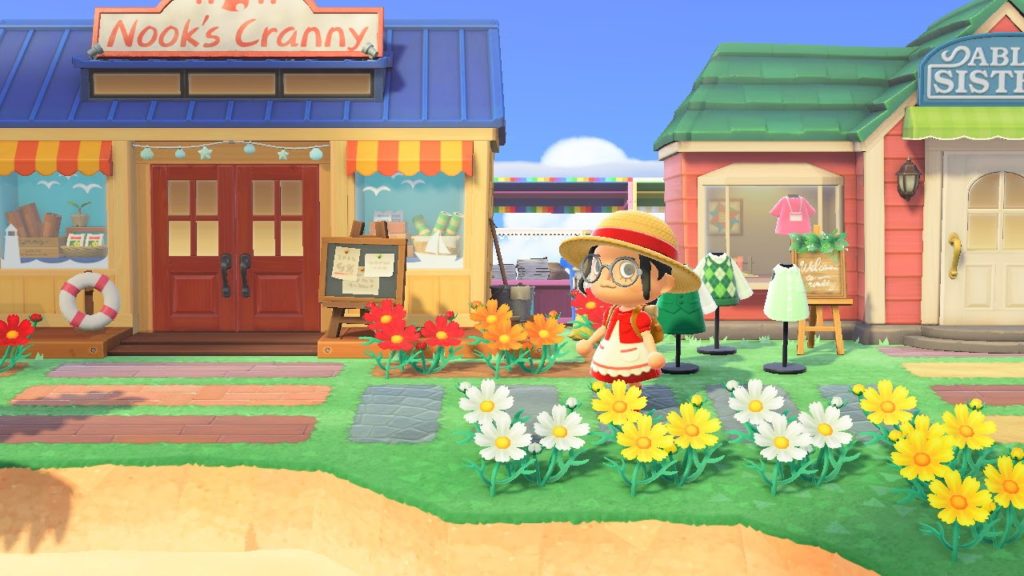
ISO: The Perfect, Unproblematic Cottagecore Game
Cottagecore is an internet trend that has been blowing up my social media ever since quarantine started. Filled with idyllic images of outdoor tea parties, elaborate picnics, and pastoral gardens, the aesthetic focuses on a return to rural life, nature, and living off the land. It’s become particularly popular with queer women as of late who have been embracing the cozy aesthetic all over the internet.
While this cute trend seems perfectly harmless, there have been discussions about the more problematic aspects of cottagecore. For one it serves as a sort of escapist fantasy that requires a certain amount of privilege to achieve, which has gained ire from non-white people for being non inclusive. Cottagecore also sells this romantic notion of leaving urban life to live off the land without asking who’s land you’re actually living on, giving a troubling colonial vibe to the aesthetic.
Regardless of its issues the themes and ideas that make up cottagecore often show up in the “wholesome” video games that many of us enjoy. While I will be talking about colonialism I am only equipped to handle it from my perspective as a Filipino born in a country that was colonized and an American currently living on colonized land. With this in mind I decided to look at some of my favorite cottagecore-esque games to figure out if they suffer the same issues and whether a completely unproblematic one exists.
Stardew Valley
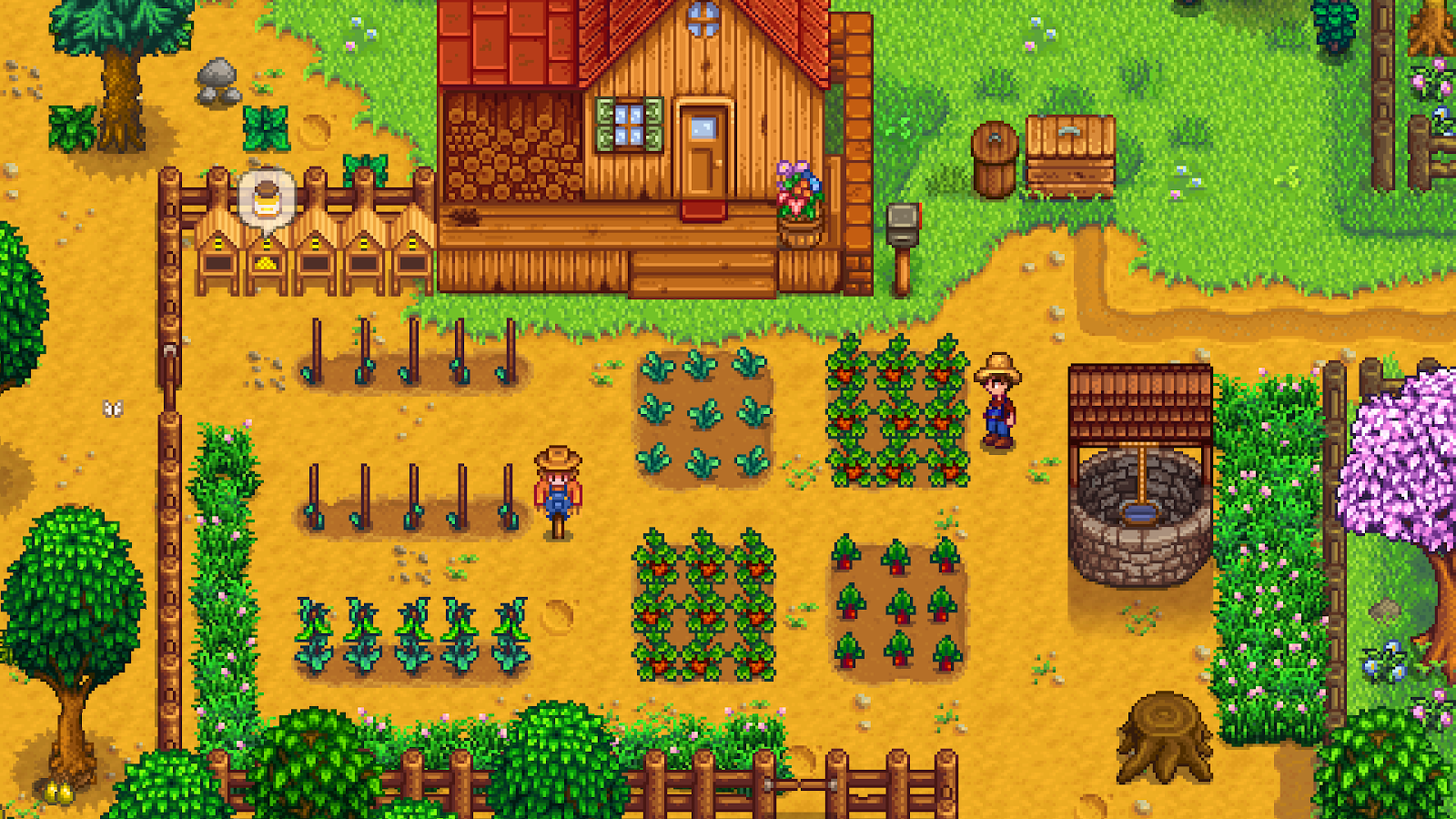
The intro to the game essentially tells the story of the cottagecore fantasy where you’re whisked away from urban life in order to take over a farm that you inherited from your deceased grandpa. While the premise is one that shows up in a lot of farming games it goes back to the idea that only a fortunate few get the chance to live out these farm life fantasies. Even though the farm is run down when you first arrive it’s still a kind of privilege to inherit property at all.
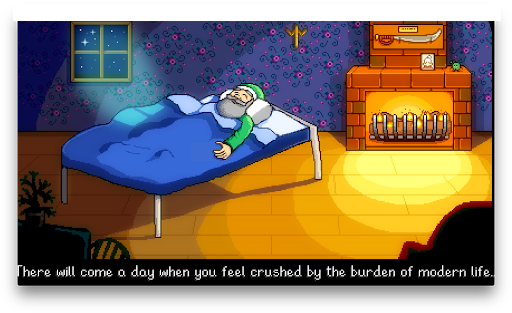
In an article for Vice, Bethan Kapur wrote about cottagecore being non inclusive and predominantly made up of white people. Kapur said, “Cottagecore may also feel more exclusionary than other trends because of its emphasis on a rural setting, which has functioned as the perfect way to show off your garden during lockdown — if you’re lucky enough to have one. Often, that privilege comes with being white. According to the 2011 UK Census, just three percent of those living in rural areas of the UK were from an ethnic minority.” Kapur attributes this as to why the trend is so alienating since cottagecore can seem less like a celebration of small town pleasures and more about rich kids showing off their country houses on TikTok.
What does it say when the most common narrative device for whisking the player off to a pastoral setting is inherently one of privilege? We all feel “crushed by the burden of modern life” as Stardew Valley puts it. But you would have to be pretty affluent to even have the option of leaving your soul sucking job at Joja Corp. Video games allow the rest of us to pretend to be so lucky.
Story of Seasons: Friends of Mineral Town
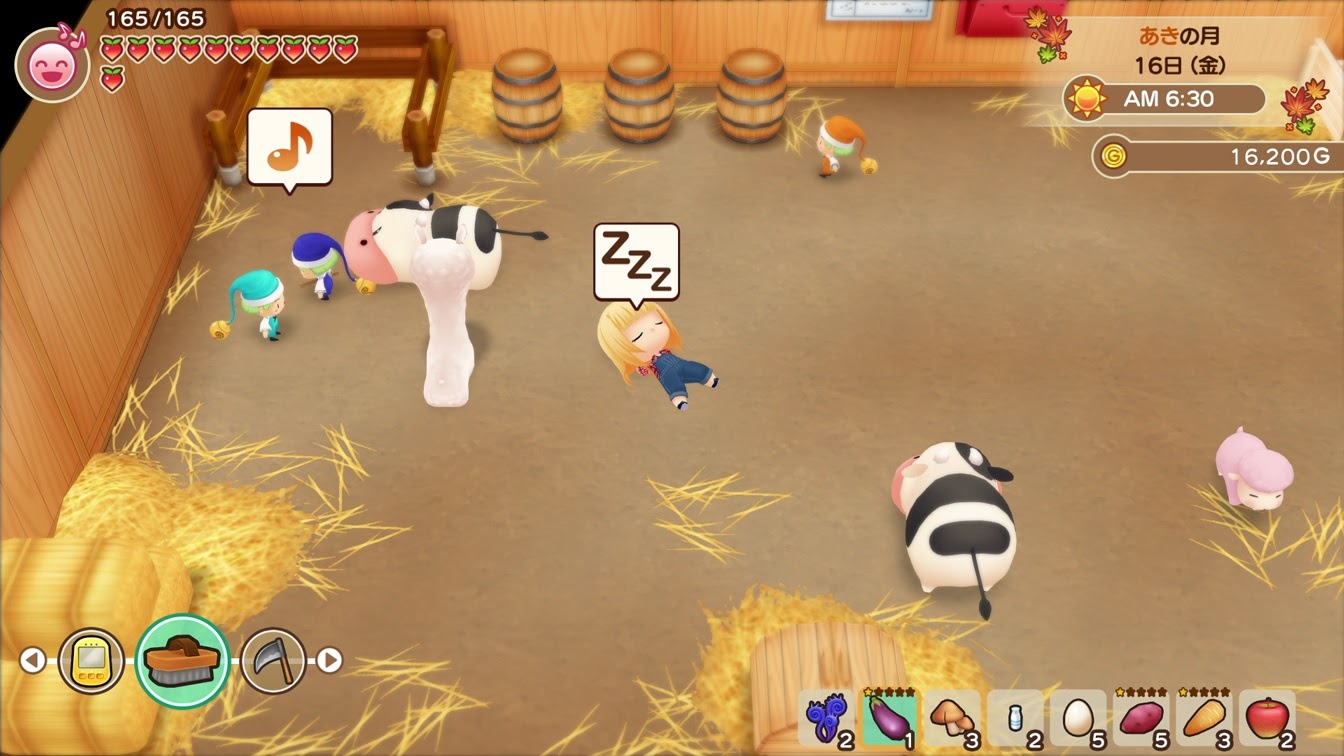
Speaking of farming sims, the new remake of Story of Seasons: Friends of Mineral Town brought me back to the series that introduced me to farming games in my childhood. The then Harvest Moon games were my first taste of cottagecore gaming and it still definitely holds up with its cute visuals and small town vibes.
But playing the Friends of Mineral Town remake as an adult made me question the ethics of some of the gameplay mechanics. Namely, I was concerned about the Nature Sprites, mystical beings who live in town that only the player can see. Once you become friends with them you can ask them to help around the farm with tasks like watering crops or feeding animals.
As I expanded my farm I needed to strategically enlist the sprites for help unless I wanted to spend the whole day watering my pineapples. It started to feel less like a cozy farming sim and more like a farming operation run off the Nature Sprite’s free labor. This comes back to the point cottagecore promoting a settler-colonialist mindset.
In a post on Gamasutra Nikhil Murthy puts forward the idea that “the fundamental difference between a colonial and non-colonial mindset is whether you are changing the world around you for large scale benefit. Murthy makes an important distinction between small scale farming that pre-colonial people engaged in versus industrial agriculture. This is something to consider when late game Story of Seasons farms look more like the latter. Still, within Story of Seasons you only have control of your farm and the rest of the town remains relatively unchanged, unlike the next game.
Animal Crossing: New Horizons
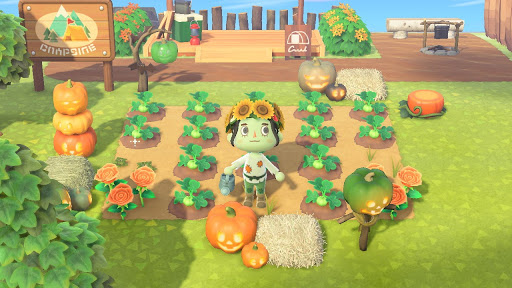
Animal Crossing: New Horizons is the quintessential cottagecore game. It drops you off on a deserted island and allows you to build your dream town filled with cute animal neighbors. New Horizons, even more than the past entries in the series, lets you mold your island to just how you want it with the inclusion of terraforming, giving you more control over the land than ever. It’s the perfect game for making the postcard worthy cottagecore town of your dreams.
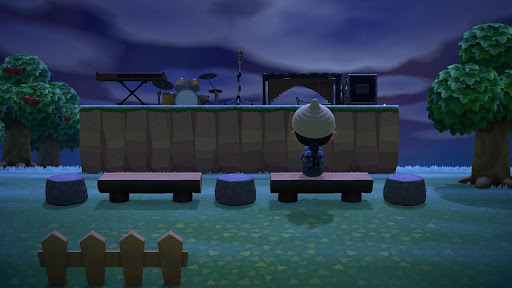
But why are you allowed to do all this? It’s because Tom Nook lets you and he owns the island. It’s a pretty simple and satisfying answer as long as you don’t question how he acquired it. But it’s okay since it’s a deserted island right? Well, it may not be so deserted considering that when you first encounter Wisp he tells you that he’s been alone on this island for a long time. Once we consider that, Tom Nook’s ownership of the island and our free reign to do whatever we want with it comes into question.
But there’s no shame in not noticing since the game, like so many other games, never asks you to question it. Tons of video games, including Minecraft, Dragon Quest Builders, and the two previous cottagecore games use fundamentally colonialist mechanics based around destroying and reshaping the world around you to your benefit. It’s completely normalized. I spent thousands of hours poring over my island to make it look beautiful without giving it a second thought. It doesn’t make these games bad but perhaps they show just how deeply ingrained colonial mindsets are even within our sweet “wholesome” games.
But what if you want to play a cottagecore game that’s completely free of colonial beliefs and mechanics? Well, don’t worry because that game does exist.
Untitled Goose Game
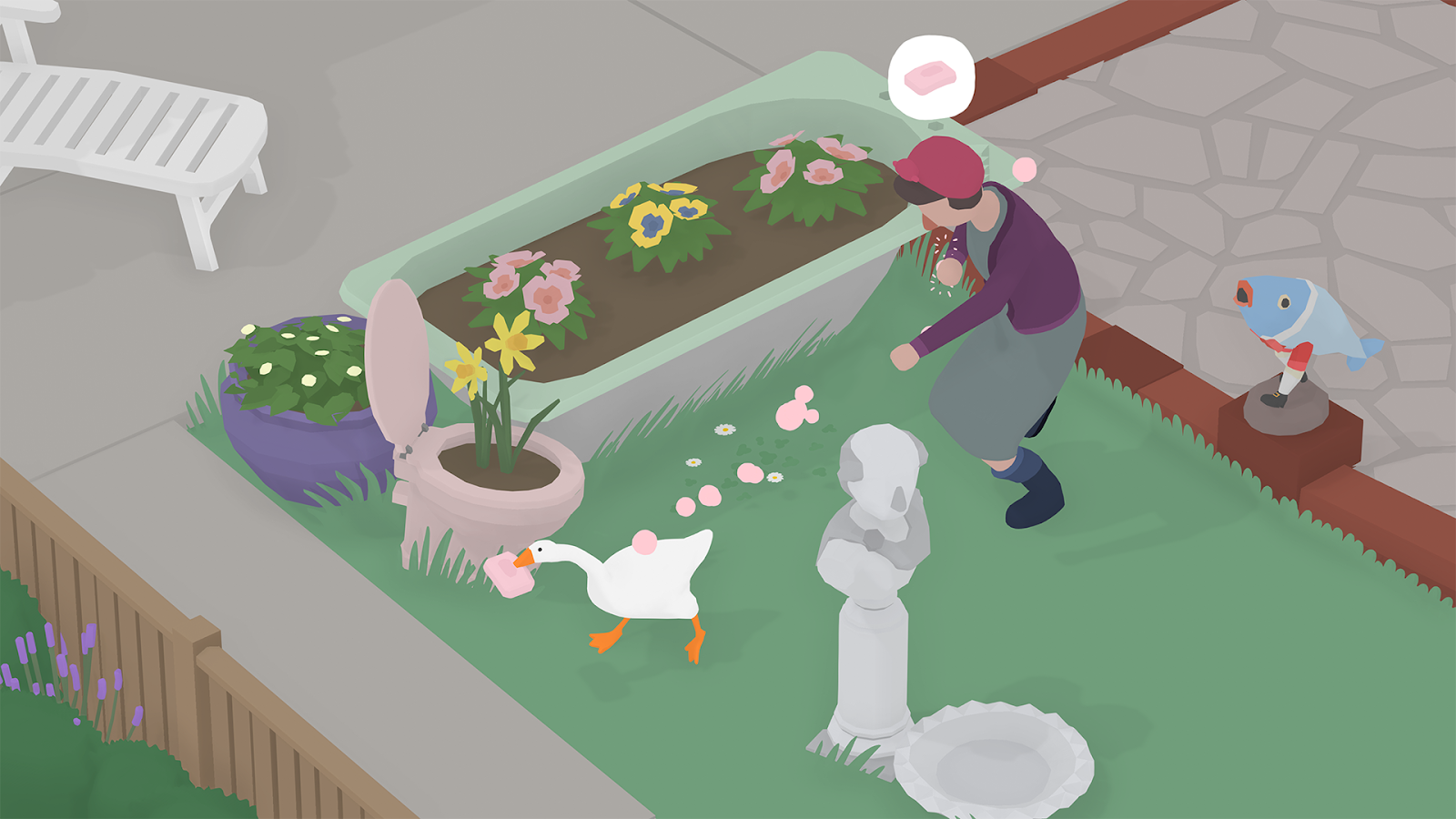
The great thing about being a goose is that the horrible implications and history of imperialism don’t apply to you because you’re just a bird terrorizing people in the British countryside.I know it’s definitely a copout to say if you’re a goose then the burdens of human history aren’t your problem. But honestly as I was looking at my own collection of cottagecore games I had difficulty finding any that didn’t have some kind of settler-colonialism mindset or mechanic. Perhaps it is a bit sad that the best method for avoiding it is to have your protagonist be an animal. But nevertheless there’s nothing wrong with stirring up a little trouble in the game’s otherwise idyllic cottagecore setting, Beside stealing a comically large amount of bells you don’t make any permanent changes to the environment and only serve as a minor, if not repetitive, inconvenience to the crotchety townspeople anyways. So that’s how Untitled Goose Game avoids the pitfalls of imperialism in ways that the other cottagecore games didn’t. So congratulations to that feisty goose for being a relatively shining beacon of anti-colonialism.






2 thoughts on “ISO: The Perfect, Unproblematic Cottagecore Game”